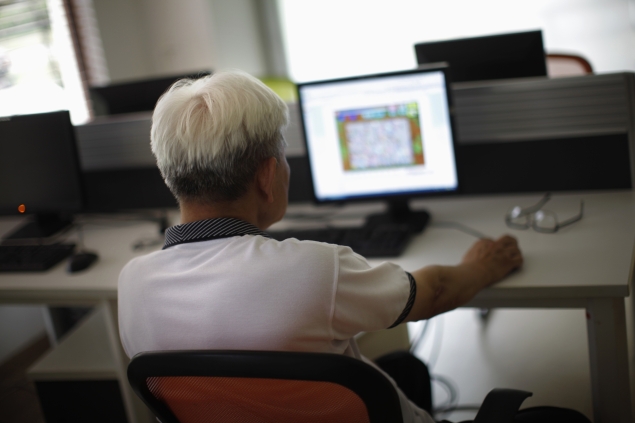- Home
- Internet
- Internet News
- Russian president Putin calls the Internet a 'CIA project'
Russian president Putin calls the Internet a 'CIA project'

The Kremlin has been anxious to exert greater control over the Internet, which opposition activists - barred from national television - have used to promote their ideas and organize protests.
Russia's parliament this week passed a law requiring social media websites to keep their servers in Russia and save all information about their users for at least half a year. Also, businessmen close to Putin now control Russia's leading social media network, VKontakte.
Speaking Thursday at a media forum in St. Petersburg, Putin said that the Internet originally was a "CIA project" and "is still developing as such."
To resist that influence, Putin said, Russia needs to "fight for its interests" online.
A Russian blogger complained to Putin that foreign websites and Yandex, the web search engine which is bigger in Russia than Google, are storing information on servers abroad, which could be undermining Russia's security.
In his reply, Putin mentioned unspecified pressure that was exerted on Yandex in its early years and chided the company for its registration in the Netherlands "not only for tax reasons but for other considerations, too."
Although Putin's comments didn't include any specific threats to Yandex, one of Russia's most successful tech companies, its shares plunged by 5 percent at the Nasdaq's opening on Thursday.
Notably, earlier this week, the maverick founder of Russia's top social network, Pavel Durov, said he had left the country after being pushed from the company against his will.
Durov told US website TechCrunch that he was no longer in Russia and had "no plans to go back" after social network VKontakte (In Touch) announced Monday that he had left the company.
His dramatic announcement was the latest episode in an acrimonious wrangle between Durov and a major shareholder in VKontakte.
Durov said this month he had come under pressure from the Russian security services to reveal data on VKontakte users, and that his refusal led to his losing his stake in the company.
The 29-year-old, who is often compared to Facebook's founder Mark Zuckerberg, told TechCrunch that "I'm out of Russia and have no plans to go back."
"Unfortunately, the country is incompatible with the Internet business at the moment," he said, adding he planned to create a new mobile social network.
With more than 100 million users concentrated in the ex-Soviet Union, VKontakte is Russia's most popular social network, far outstripping Facebook.
Written with inputs from AFP and AP
Catch the latest from the Consumer Electronics Show on Gadgets 360, at our CES 2026 hub.
Related Stories
- Samsung Galaxy Unpacked 2025
- ChatGPT
- Redmi Note 14 Pro+
- iPhone 16
- Apple Vision Pro
- Oneplus 12
- OnePlus Nord CE 3 Lite 5G
- iPhone 13
- Xiaomi 14 Pro
- Oppo Find N3
- Tecno Spark Go (2023)
- Realme V30
- Best Phones Under 25000
- Samsung Galaxy S24 Series
- Cryptocurrency
- iQoo 12
- Samsung Galaxy S24 Ultra
- Giottus
- Samsung Galaxy Z Flip 5
- Apple 'Scary Fast'
- Housefull 5
- GoPro Hero 12 Black Review
- Invincible Season 2
- JioGlass
- HD Ready TV
- Laptop Under 50000
- Smartwatch Under 10000
- Latest Mobile Phones
- Compare Phones
- Honor Magic 8 RSR Porsche Design
- Honor Magic 8 Pro Air
- Infinix Note Edge
- Lava Blaze Duo 3
- Tecno Spark Go 3
- iQOO Z11 Turbo
- OPPO A6c
- Samsung Galaxy A07 5G
- Lenovo Yoga Slim 7x (2025)
- Lenovo Yoga Slim 7a
- Lenovo Idea Tab Plus
- Realme Pad 3
- Moto Watch
- Garmin Quatix 8 Pro
- Haier H5E Series
- Acerpure Nitro Z Series 100-inch QLED TV
- Asus ROG Ally
- Nintendo Switch Lite
- Haier 1.6 Ton 5 Star Inverter Split AC (HSU19G-MZAID5BN-INV)
- Haier 1.6 Ton 5 Star Inverter Split AC (HSU19G-MZAIM5BN-INV)






![[Sponsored] Haier C90 OLED TV | Dolby Vision IQ, 144Hz OLED and Google TV in Action](https://www.gadgets360.com/static/mobile/images/spacer.png)









